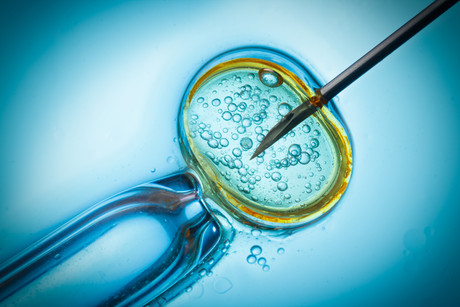Artificial intelligence set to boost IVF success

A medicine student at the University of New South Wales has designed a pioneering artificial intelligence system that is helping embryologists improve IVF pregnancy rates.
The spark of inspiration came when 24-year-old undergraduate student Aengus Tran was attending a visiting lecture by Dr Simon Cooke, the Scientific Director at IVF Australia. He explained how embryologists have traditionally manually assessed groups of embryos based on physical appearance at a limited number of critical development check points, before selecting which one they felt would be most likely to result in a pregnancy.
Aengus identified that artificial intelligence could be used to make those decisions faster and also better — based on machine learning from thousands of previous successful and unsuccessful embryos — and ultimately designed a system that is now known as Ivy. Together with his brother Dimitry — an AGSM @ UNSW Business School Executive MBA alumnus — they set up a company called Harrison-AI.
Ivy is a self-improving artificial intelligence system that continuously learns from the embryos it analyses via a comprehensive three-dimensional assessment of the growth of the embryos through all stages of development in an incubator. It then relates this data to whether a foetal heart has developed or not.
“Ivy has taught itself how to select out the embryo with the highest potential to create a foetal heart,” said Aengus, who is Chief Data Scientist at Harrison-AI.
“It starts off with a completely blank canvas and it’s not influenced by any previous human knowledge or bias. It has learned directly from thousands of embryos that have had a known foetal heart outcome and has slowly and steadily improved itself to become better and better at selecting embryos.”
Harrison-AI is now in partnership with Virtus Health, a leading Australian provider of assisted reproductive services, which is poised to introduce Ivy technology in IVF Australia clinics nationwide and also across Europe later this year. Harrison-AI is also hoping to branch out the technology to help patients suffering from various health issues, including lung problems and eye disease.
“A lot of very exciting things are possible right now because of the level we’re at with computing power,” said Dimitry, who serves as Chairman of Harrison-AI. “It’s opening up a whole new field of innovation and we’re very much in the early days of working out how to apply AI to health care.
“In the past, people used to talk about the Trifecta problem. You could not have something that was very fast, very good and very cheap — you could only pick two of those to be correct. But now for the first time with AI it is possible to be fast, accurate and cheap.”
Quitting smoking increases life expectancy even for seniors
Although the benefits of quitting smoking diminish with age, there are still substantial gains...
Stem cell transplants treat blindness in mini pigs
Scientists have successfully transplanted retinas made from stem cells into blind mini pigs,...
Sugary drinks raise cardiovascular disease risk, but occasional sweets don't
Although higher sugar intake raises your risk of certain cardiovascular diseases, consuming sweet...



